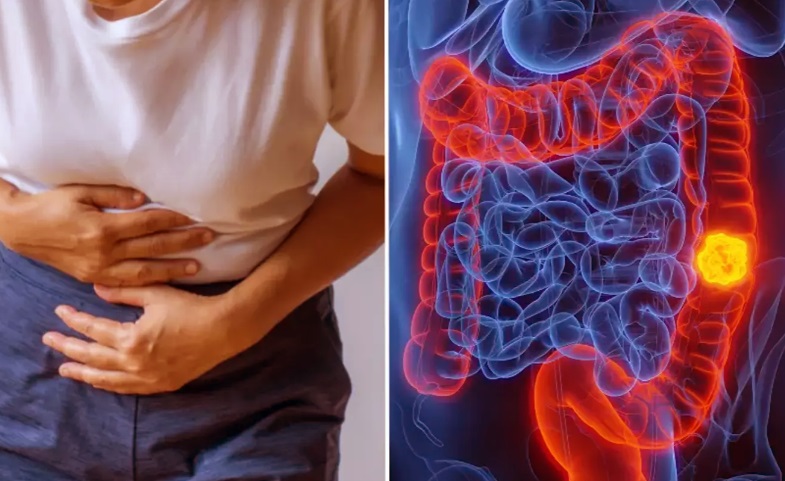Chemoprevention Strategies to Prevent Colorectal Cancer in Those with Inflammatory Bowel Disease
Nikhil Prasad Fact checked by:Thailand Medical News Team Jan 13, 2025 3 months, 8 hours, 19 minutes ago
Medical News: Patients with inflammatory bowel disease (IBD), including Crohn’s disease (CD) and ulcerative colitis (UC), face a higher risk of developing colorectal cancer (CRC) due to the persistent inflammation in the colon. Chronic inflammation leads to DNA damage, oxidative stress, and an environment conducive to carcinogenesis. Researchers from the Department of Gastroenterology and the Department of Medical Oncology at the University Hospital of Ioannina and the University of Ioannina in Greece have reviewed various strategies to reduce CRC risk in this vulnerable population.
 Chemoprevention Strategies to Prevent Colorectal Cancer in Those with Inflammatory Bowel Disease
Chemoprevention Strategies to Prevent Colorectal Cancer in Those with Inflammatory Bowel Disease
This
Medical News report explores promising chemopreventive measures for CRC in patients with IBD, including medications, biologics, and nutraceuticals. The findings emphasize the importance of understanding and utilizing these strategies effectively.
Why Is CRC Risk Elevated in IBD?
Patients with IBD experience prolonged inflammation, which not only disrupts DNA repair mechanisms but also creates genomic instability. The inflammation recruits immunosuppressive cells, facilitating cancer cell invasion and metastasis. Certain risk factors increase the likelihood of CRC in IBD patients, such as disease duration, extent of colitis, and concurrent conditions like primary sclerosing cholangitis (PSC). Studies show that patients with extensive colitis have the highest risk of CRC.
A 2024 meta-analysis revealed that the prevalence of CRC in UC patients is approximately 3.7%, with risks increasing significantly after 10, 20, and 30 years of disease duration. Although some studies report lower CRC risks in IBD, timely monitoring and preventive strategies remain crucial.
Potential Chemopreventive Agents
1.Mesalazine (5-ASA)
Mesalazine is widely used for managing UC and shows chemopreventive properties against CRC. Its mechanisms include:
-Inhibition of oncogenic β-catenin pathways.
-Reduction of inflammation via modulation of COX and LOX pathways.
-Scavenging reactive oxygen species (ROS) to prevent DNA damage.
A meta-analysis of 31 studies involving 2137 cases of colorectal neoplasia found a 43% risk reduction in CRC among patients using mesalazine. These findings suggest significant protection, particularly in UC patients.
2.Thiopurines
Thiopurines, used to maintain remission in IBD, also demonstrate chemopreventive effects. A review of 24 studies involving over 76,000 participants showed a 37% reduction in CRC risk with thiopurine use. However, the protective effect was significant in UC but not in CD patients. Thiopurines’ anti-inflammatory properties contribute to their efficacy, though concerns about side effects, such as lymphoma risk, remain.
3.Anti-TNF Agents
Biologic therapies like infliximab and adalimumab target tumor necrosis factor-alpha (TNF-α) to reduce inflammation and promote mucosal healing. Recent studies reveal that these agents lower CRC risk in IBD patients. For example, a Dutch study demonstrated a 91% risk reduction in IBD-related CRC among patients treated with anti-TNF agents.
4.Statins
Primarily used for hypercholesterolemia, statins exhibit anti-inflammatory and antioxidant effects. Evidence from studies is mixed, with some showing a protective effect against CRC in IBD patients, while others report no significant impact. However, prolonged statin use appears beneficial, as demonstrated in a Swedish cohort study where patients on statins for over two years had a reduced CRC risk.
5.Aspirin
Aspirin’s ability to inhibit prostaglandin synthesis and WNT-β-catenin signaling suggests potential as a CRC chemopreventive agent. However, data specific to IBD patients are inconclusive. A meta-analysis showed no significant reduction in CRC risk among aspirin users with IBD.
Nutraceuticals and Dietary Interventions
Emerging evidence supports the role of nutraceuticals in CRC prevention. These include:
-Curcumin: Derived from turmeric, it inhibits cancer cell proliferation and induces apoptosis.
-Dietary Fiber: Enhances gut health by producing beneficial short-chain fatty acids like butyrate, which suppress cancer progression.
-Grape Seed Extract: Contains polyphenols with anti-inflammatory properties.
While promising, these interventions require further clinical validation.
Study Limitations and Future Directions
Despite the promising data, knowledge gaps remain. Many studies rely on retrospective analyses, which can introduce biases. Furthermore, optimal dosing, long-term safety, and combined use of chemopreventive agents are underexplored. Emerging biologics, such as interleukin inhibitors, offer hope but require rigorous investigation to understand their role in CRC prevention.
Conclusion
CRC prevention in IBD patients involves a combination of regular surveillance colonoscopy and chemopreventive strategies. Agents like mesalazine, thiopurines, and anti-TNF biologics show significant promise in reducing CRC risk. Nutraceuticals and dietary changes provide additional avenues for prevention but need robust clinical evidence.
As personalized medicine advances, tailoring prevention strategies to individual risk profiles can enhance outcomes. Understanding the molecular mechanisms behind IBD-associated CRC will further refine these strategies, making prevention more effective and accessible.
The study findings were published in the peer-reviewed journal: Cancers.
https://www.mdpi.com/2072-6694/17/2/229
For the latest on Colorectal Cancer, keep on logging to Thailand
Medical News.
Read Also:
https://www.thailandmedical.news/news/phytochemical-from-gerbera-piloselloides-shows-promise-for-colorectal-cancer-treatment
https://www.thailandmedical.news/news/potential-of-plant-compounds-in-treating-colon-cancer
https://www.thailandmedical.news/news/canadian-study-finds-that-ursolic-acid-could-be-used-as-an-adjuvant-to-combat-colorectal-cancer
